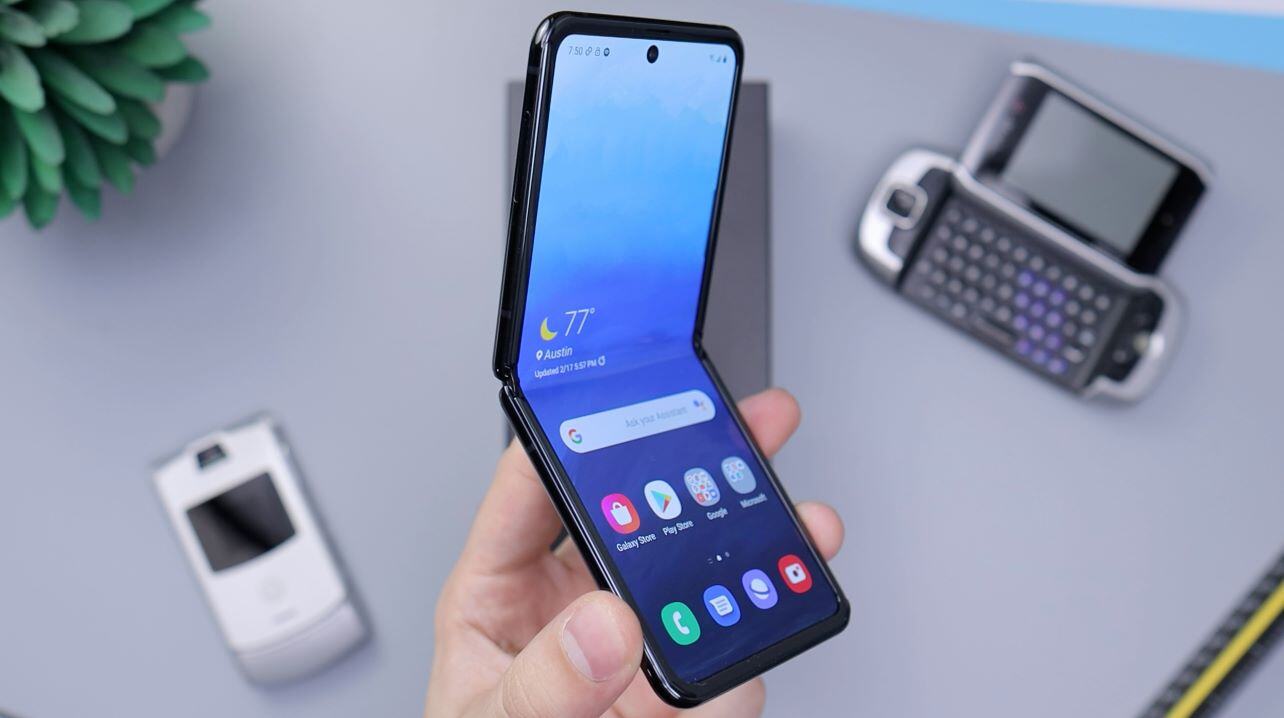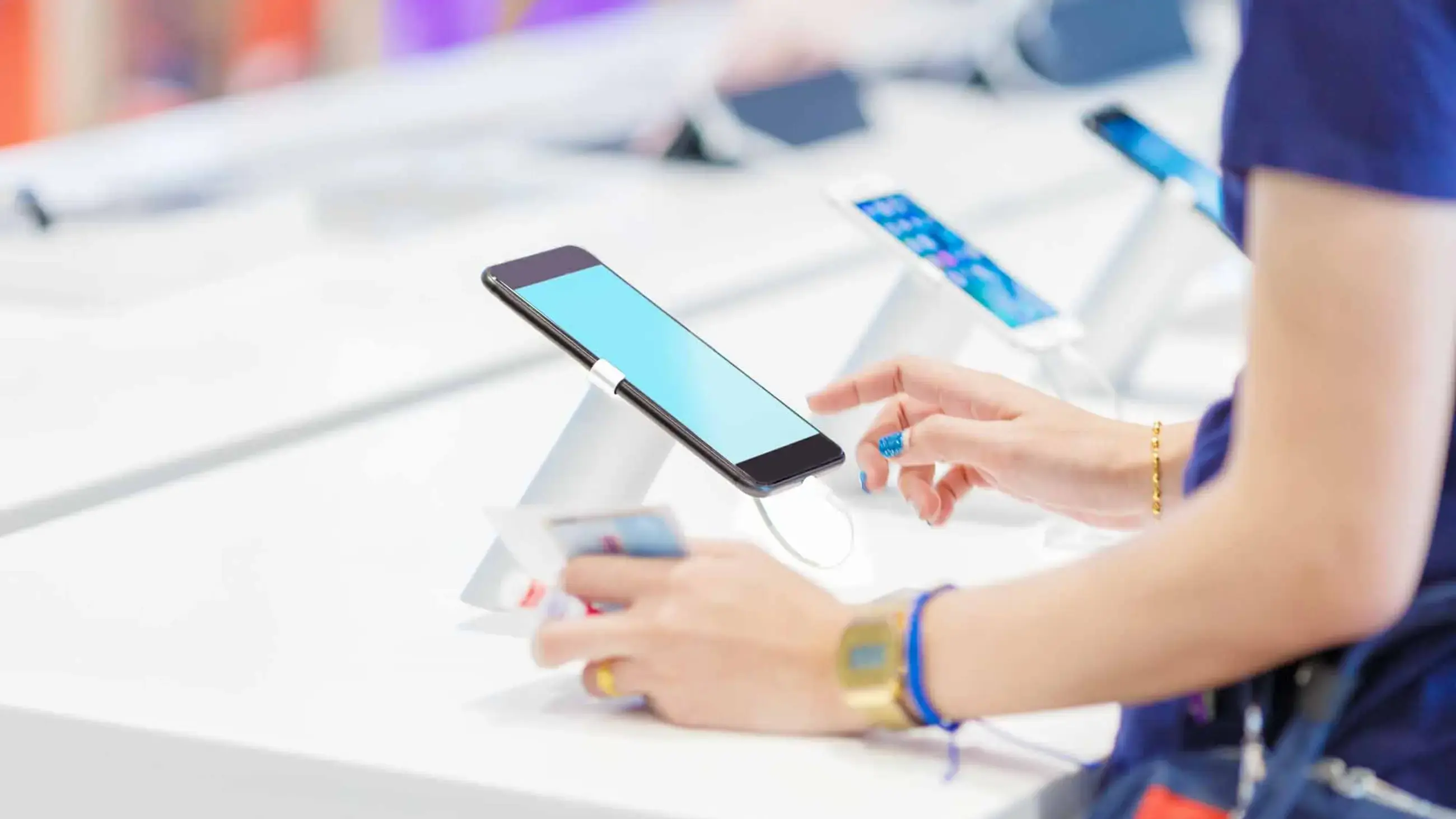This article by Bryter’s resident tech lead Guy Smith explores findings from a recent survey of UK consumers, examining their perspectives on AI phones. The research reveals that while younger consumers are excited about AI’s potential, overall awareness and understanding of smartphone AI remain limited. Key barriers include the prioritisation of traditional features like battery life and camera quality over AI capabilities, as well as lingering concerns about AI’s relevance and privacy implications. With Apple leading in perceived AI innovation, the industry faces the challenge of making AI benefits clearer and more relatable. For smartphone brands, the path forward involves building consumer trust, addressing privacy concerns, and demonstrating tangible, everyday applications for AI.
Access and download the full report here
The Ubiquity of AI in Daily Life
In today’s tech-centric world, artificial intelligence (AI) has seamlessly embedded itself into everyday life. From at-home companions like Alexa and Google Home, now found in roughly two in five UK households, to phone-based AI assistants such as Siri and Bixby, AI is everywhere. Yet, for consumers, its promise in smartphones is both exciting and uncertain, underscoring a shift in how we view and interact with technology. While AI is not new, recent advances, especially with large language models like ChatGPT, have pushed it into the mainstream, igniting discussions on its vast potential.
AI as the Next Frontier in Smartphone Innovation
As smartphones evolve, AI has emerged as the next frontier in an industry that, in recent years, has relied heavily on incremental improvements, especially around camera technology. While foldable devices like Samsung’s Flip and Fold have shown that hardware innovation still has potential, it’s increasingly clear that the industry sees AI as the catalyst for genuine transformation. In late 2023, a survey of over a thousand UK consumers highlighted this perception shift, examining how AI in smartphones might redefine consumer expectations.

Consumers’ Mixed Feelings on AI in Smartphones
Despite the recent hype, AI remains a relatively low priority for most consumers when considering their next smartphone. Features such as battery life, camera quality, brand reputation, and storage capacity consistently rank above AI in importance. Many consumers may not yet grasp the practical benefits AI could bring to everyday smartphone use, suggesting a gap in understanding that manufacturers will need to bridge. The survey revealed that only 16% of respondents rated AI capabilities as essential in a new phone purchase, far behind more established features.
Younger Generations Drive Excitement Around AI
Still, for younger consumers, AI is sparking genuine enthusiasm. Nearly half of respondents under 45 expressed excitement about what AI could bring to smartphones. Features like AI-powered photo editing, which Google has heavily promoted, resonate strongly with this demographic, particularly those under 35. Real-time image enhancements, creative filters, and editing tools have heightened the appeal of smartphone cameras, showcasing AI's immediate, tangible benefits in a way that’s relevant to daily use.
Challenges and Skepticism Around AI’s Role
Yet, there are considerable challenges. While 39% of surveyed consumers expressed interest in switching phone brands for advanced AI capabilities, a substantial 60% admitted that AI doesn’t yet factor into their buying decision. Nearly half stated that they simply do not see AI’s benefits for smartphones. This highlights the complex landscape brands face in convincing consumers of AI's value.

Brand Perception: Apple Leading the Pack
Interestingly, brand perception plays a critical role. Although companies like Google and Samsung are vocal about their AI advancements, Apple is widely perceived as the leader in AI phone innovation, with 51% of respondents ranking it first, well ahead of Samsung and Google. This perceived leadership may stem from Apple’s reputation for user-friendly, seamlessly integrated technology, underscoring how trust and familiarity continue to shape consumer attitudes in an increasingly AI-driven market.

Opportunities for Brands to Drive AI Adoption
Looking forward, manufacturers have clear opportunities to capitalize on AI’s potential. Engaging younger, tech-savvy consumers—who are most enthusiastic about AI—could drive early adoption. Equally important is building awareness and defining AI phones. By addressing concerns around AI’s “unknowns” and tying AI advancements to features consumers care about, brands can bridge the perception gap.
Conclusion: AI in Smartphones—A Journey Just Beginning
The journey to fully integrate AI phones is just beginning, and while consumer excitement is building, significant work remains. To ensure AI reaches its potential, brands must not only showcase the technology’s practical benefits but also build trust with a sceptical public. As AI evolves, it will be fascinating to see how smartphones—and our relationships with them—continue to change.
Read more
If you would like to access a full copy of the report that contains additional data, insights and implications for consumer attitudes to the connected home, you can download the full report here

Bryter is a leading insights consultancy specialising in consumer technology research. If you'd like to learn more about the role market research and insights can play in supporting your consumer strategy you can read our article The Application of Market Research in the Study of Artificial Intelligence (AI).
Or get in touch directly using the form below to speak to one of our insights consultants




